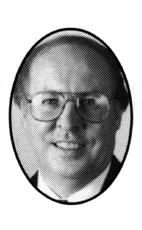Mr. Speaker, I am pleased to have the opportunity to respond in greater detail to the concerns raised by the hon. member for The Battlefords-Meadow Lake that aboriginal veterans have not been treated the same as other war veterans.
When the National Aboriginal Veterans Association first raised allegations of unfair treatment in the early 1980s Veterans Affairs Canada asked it to bring forward any case in which a veteran believed that unfair discriminatory treatment had been received.
Several hundred cases have been put forward since that time. All were thoroughly reviewed and not one provided any evidence to suggest that there had been any unfair or discriminatory treatment.
In addition to these file reviews the National Aboriginal Veterans Association was provided office space and administrative help by Veterans Affairs to assist it with the development of its report to the royal commission on aboriginal peoples.
Notwithstanding the association's extensive research and file reviews, no evidence of maladministration was cited by the National Aboriginal Veterans Association in its report to the royal commission.
Turning to the legislation itself, if hon. members review any of the veterans legislation they will find that the definition of veteran makes no distinction between aboriginal and non-aboriginal veterans. Simply put, a veteran is anyone who has served in the armed forces or the merchant navy during wartime.
The one instance in which it was necessary to make special reference to aboriginal veterans was in the Veterans Land Act. The purpose of that reference was to ensure that Indian veterans living on Indian reserves were able to obtain benefits under that act.
The fact is that no allegation of discrimination has any basis in veterans legislation. There is no discrimination in the law and again the report submitted by the National Aboriginal Veterans Association to the royal commission confirmed the conclusion that veterans legislation does not discriminate against aboriginal veterans.
In view of this background and in view of the comments of the hon. member, the position taken by the Secretary of State for Veterans in response to the hon. member's question earlier and today is the best possible approach.
If the hon. member is aware of any veteran's case as he suggested that he is today, aboriginal or non-aboriginal, any case in which discrimination or unfair treatment is alleged, bring that case to the secretary's attention and it will be, I assure members, thoroughly reviewed and any appropriate action taken without delay.

